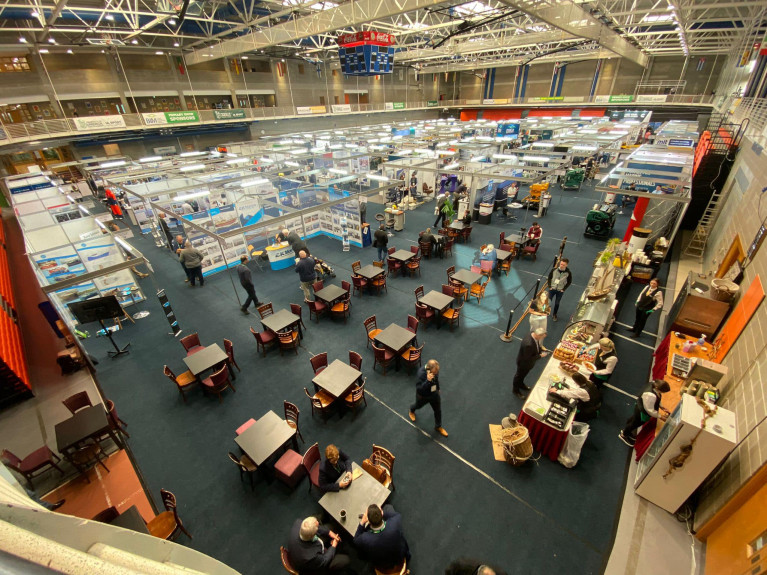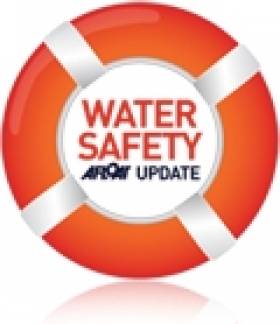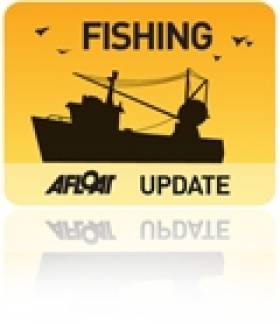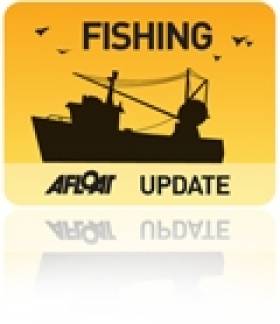Displaying items by tag: Irish Skipper Expo
Marine Institute to Put Focus on Strengthening Sustainable Fisheries, Aquaculture and Ocean Management at Irish Skipper Expo
The Marine Institute will be exhibiting at two stands at the Irish Skipper Expo this Friday 23 and Saturday 24 February at the University of Limerick.
Firstly, the institute’s shellfish team will present the work it carries out on data collection, assessment and advice on shellfish species.
The newly published Shellfish Stocks and Fisheries Review for 2023 will be available both in hard copy and online, with data reported for all major shellfish species that the inshore fishing fleet rely on.
Its online equivalent, the Shellfish Fisheries App, will be launched providing online access to shellfish surveys and assessments undertaken by the shellfish team.
The industry provides much of the data going into the shellfish assessments and the stand provides an opportunity for both parties to discuss inputs and outputs from this important programme for the inshore fishing fleet in Ireland.
In addition to all issues relating to commercially fished shellfish around the Irish coast, the Marine Institute will be on hand to talk about the current inshore Vessel Monitoring System (iVMS), the ICeco (Irish Coastal Ecosystem) survey and the skipper self-sampling programme, currently out for tender, which is an opportunity for skippers to get involved and be paid for reporting of data on crab and lobster fisheries to the Marine Institute.
The EMFAF (European Maritime Fisheries and Aquaculture Fund) Marine Biodiversity and Marine Knowledge Schemes team will also attend the Irish Skipper Expo to showcase to industry and stakeholders the priorities being implemented under these schemes.
These include contributing to the protection and restoration of aquatic biodiversity and strengthening sustainable sea and ocean management. Marine Institute staff will be available to provide information on the implementation of the EMFAF operational programmes and the projects funded and implemented by the institute.
‘The biodiversity scheme under Ireland’s EMFAF programme helps provide the science and evidence basis to support a sustainable seafood production programme’
“In order for seafood production to be sustainable it is important that not only is the resource carefully managed, but the impacts of harvesting that resource on the wider ecosystem are also considered,” director of fisheries Ciaran Kelly said.
“The biodiversity scheme under Ireland’s EMFAF programme helps provide the science and evidence basis to support a sustainable seafood production programme that also protects and restores marine biodiversity.”
The Marine Knowledge Scheme, meanwhile, aims to enable the collection, management, analysis, processing and use of marine data to improve the knowledge on the state of the marine environment and inform a sustainable blue economy.
An important goal is to contribute to the achievement of climate change objectives. The scheme will improve understanding of impacts of climate change on marine activities and on the environment.
EMFAF has many projects under way at the moment under both schemes, including the assessment of the crayfish fishery to restore the crayfish stocks and protect critically endangered species.
In addition, the data and digital services programme enables the collection and analysis of marine data covering the full breadth of marine activities and ensuring delivery on national obligations relating to marine spatial planning, marine environment, fisheries data, marine renewable energy and climate.
Climate projects being implemented are contributing to climate change mitigation and adaptation in fisheries and aquaculture. This will help to deliver on Ireland’s Climate Action Plan 2023. The focus of these includes the highly skilled areas of remote sensing and climate change projections. It means that Government and other stakeholders have a solid evidence base available to formulate decisions.
The EMFAF Marine Biodiversity and Marine Knowledge Schemes are cofunded by the Irish Government and the European Maritime Fisheries & Aquaculture Fund (EMFAF) 2021-2027. The schemes are established under Priority 1 (Sustainable Fisheries) and Priority 2 (Sustainable Aquaculture) and Priority 4 (Strengthen Ocean Governance) of Ireland’s Operational Programme (OP) under the EMFAF.
Harland & Wolff Launch Fishing Vessel Newbuild & Marine Services at Irish Skipper Expo
Shipyard group, Harland & Wolff has launched their fishing vessel newbuild and marine services at the Irish Skipper Expo 2022 held in Limerick which continues tomorrow, Saturday, 26th March between 10am-4pm.
Displaying the capacity and capability of two world-renowned shipyards – Harland & Wolff (Belfast) and Harland & Wolff (Appledore) are to showcase the experience and expertise of their team across these both these sites.
H&W will also be premiering their own fishing vessel design for those who want a ready-package and showcasing its bespoke service offering too.
This launch comes as the UK’s new build fishing vessel capacity is in high demand and with lead times growing. H&W say they have immediate capacity to service this sector and build vessels at these shipyards.
The Irish Skipper Expo is held at the University of Limerick' Sport Arena in Castletroy. The event is Ireland’s flagship fisheries venue designed to showcase a vast array of equipment and support services available to the commercial fishing sector.
New Sea Safety Training Guide for Ireland's Fishermen
#SafetyAtSea - Bord Iascaigh Mhara (BIM) highlighted the importance of safety at sea in the Irish fishing industry at this year’s Irish Skipper Expo in Galway last weekend.
Ireland's sea fisheries board also marked the occasion with the launch of a new training guide on personal survival techniques, covering key topics such as personal flotation devices, abandoning ship, helicopter rescue and hypothermia.
The guide, approved by the National Adult Literacy Association (NALA), was developed by BIM in consultation with Dr Jason van der Velde of Medico Cork at Cork University Hospital, the Department of Transport and the Irish Coast Guard.
Over the last five years, 19 deaths at sea related to the commercial fishing and aquaculture sector have been recorded. Statistics for 2012 record seven deaths, and an increase year on year for the previous four years. And with two deaths already recorded this year, safety is a serious issue that must be addressed in the wider seafood sector.
BIM chief executive Jason Whooley emphasised the importance of completing life saving safety training. "Fishing is a dangerous occupation and the sector has already suffered from too many tragic accidents at sea in recent years," he said.
"With new developments in safety on board and new technology coming on stream, we have more tools at our disposal to increase survival rates from accidents at sea but in order for these measures to be effective, all crew require the necessary training.
"It is therefore imperative that fishermen and aquaculture personnel, who have not already done so, complete their safety training to help prevent any further lives lost at sea."
BIM runs a variety of training courses for industry, including the mandatory Basic Safety Course, in its dedicated training colleges under the National Fisheries College Ireland (NFCI) umbrella in Greencastle, Co Donegal and Castletownbere, Co Cork, as well as on board its coastal training units that bring training directly to ports and coastal locations around Ireland.
Irish Skipper Expo Visitor Numbers 'Exceed Expectations'
#FISHING - The 2012 Irish Skipper Expo has been hailed by organisers as the most successful to date, as World Fishing reports.
Over 100 companies displayed their products and services to more than 4,500 visitors from the fishing industry and retail and catering sectors at the Skipper Expo International 2012, held at the Galway Bay Hotel on 24-25 February.
As previously reported on Afloat.ie, Marine Minister Simon Coveney was on hand to launch a new initiative promoting the use of selective fishing nets, and he was full of praise for the weekend-long exposition.
“I am very impressed by the scale and expanse of this event which showcases a wide range of products and services for the fishing industry," he said. "While visiting the stands, I was able to meet and discuss with fishermen current issues and also get a good understanding of the latest developments and innovations in their industry.”
Sharon Boyle, event manager at organisers Mara Media Ltd, added: "The support from the industry continues to be very strong for this show and the number of visitors during the two-day event once more exceeded expectations in what was a very busy weekend.
"Dates for next year’s show are 1-2 March, being held once more at the Galway Bay Hotel.”
Fishing Industry Welcomes Selective Nets, Grant Aid at Irish Skipper Expo
#FISHING - Minister for the Marine Simon Coveney briefed the Irish Skipper Expo in Galway last weekend on a new initiative promoting the use of selective conservation fishing nets, which allow young fish to escape.
Under the initiative in the Celtic Sea, additional quotas of up to 25% will be made available by the minister to skippers of Irish fishing boats which use an escape panel in their nets, allowing young whiting and haddock to escape.
The escape panel, developed by the Irish industry, has been endorsed at EU level and is expected to be a mandatory requirement later in the year.
Minister Coveney said on Saturday: “The use of this panel will significantly reduce discards of juvenile whiting and haddock in the Celtic Sea, allowing juvenile fish to grow and mature and contribute to increased stock size and returns for fishermen in future years.
"I believe that this offers an example of a practical approach to dealing effectively with the discards problem and retention of a flexible quota allocation system that we should take forward in the context of the Common Fisheries Policy Review."
In other news, Bord Iascaigh Mhara (BIM) announced €1.5 million in grant aid for the Irish fishing industry at the expo.
A spokesperson for BIM confirmed to the Galway Independent that the funding will be available to industry through a variety of schemes including fleet safety, seafood environmental management, lobster V-notching and coastal action groups.
Over 100 companies displayed their products and services to fishermen at the Irish Skipper Expo International 2012, held at the Galway Bay Hotel on 24-25 February.
- Fishing
- commercial fishing
- Minister for the Marine
- Simon Coveney
- Irish Skipper Expo
- Skipper Expo International
- 2012
- Galway Bay Hotel
- Galway
- conservation
- selective
- quota
- Celtic sea
- initiative
- discards
- grant aid
- Bord Iascaigh Mhara
- BIM
- Funding
- Coastal
- Seafood
- whiting
- haddock
- juvenile fish
- Common Fisheries Policy

































































